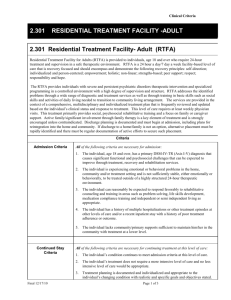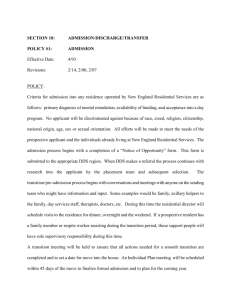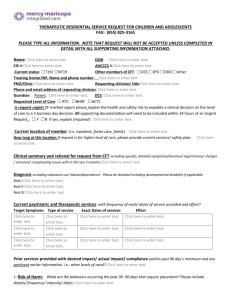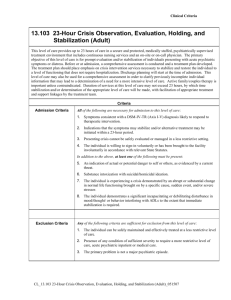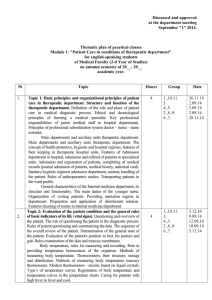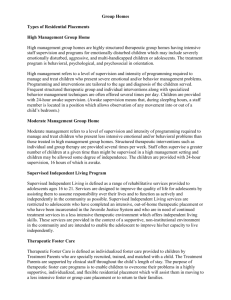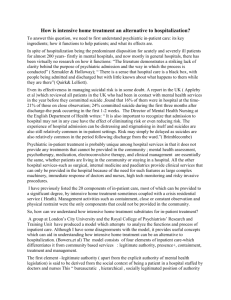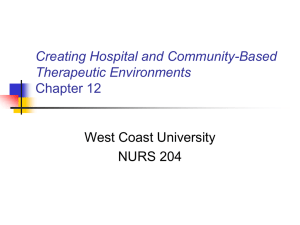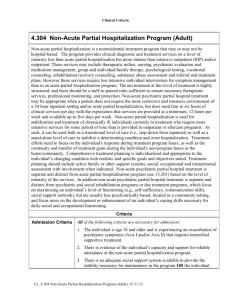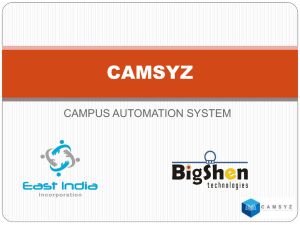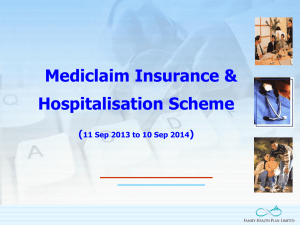Long Term Structured Residential Treatment Centers
advertisement
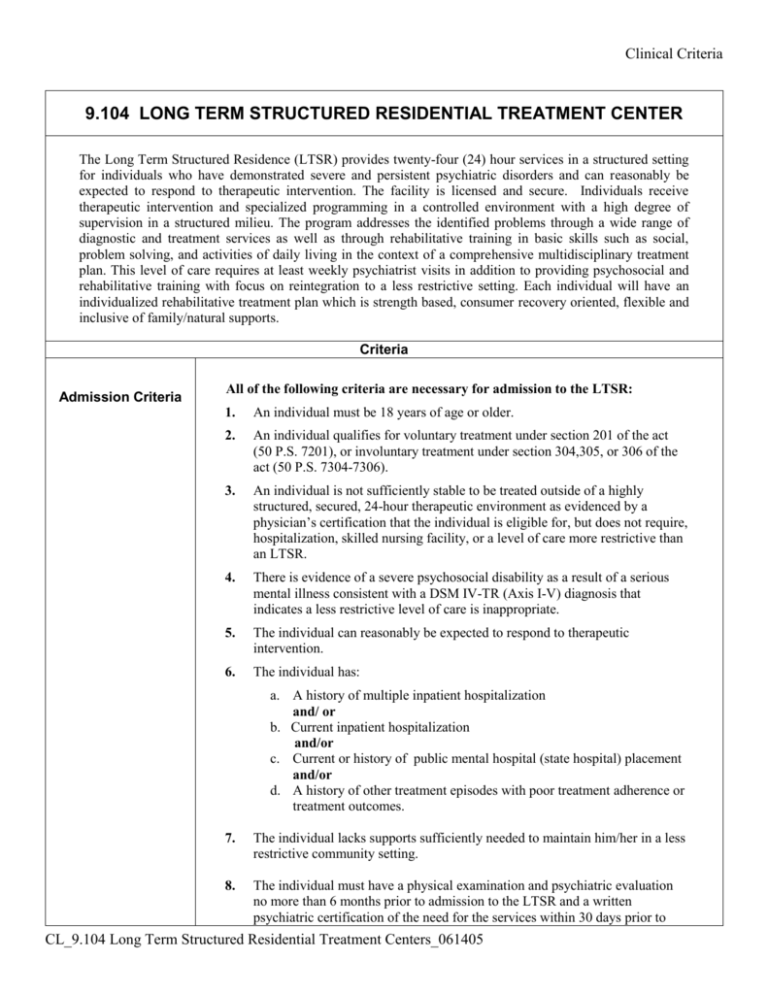
Clinical Criteria 9.104 LONG TERM STRUCTURED RESIDENTIAL TREATMENT CENTER The Long Term Structured Residence (LTSR) provides twenty-four (24) hour services in a structured setting for individuals who have demonstrated severe and persistent psychiatric disorders and can reasonably be expected to respond to therapeutic intervention. The facility is licensed and secure. Individuals receive therapeutic intervention and specialized programming in a controlled environment with a high degree of supervision in a structured milieu. The program addresses the identified problems through a wide range of diagnostic and treatment services as well as through rehabilitative training in basic skills such as social, problem solving, and activities of daily living in the context of a comprehensive multidisciplinary treatment plan. This level of care requires at least weekly psychiatrist visits in addition to providing psychosocial and rehabilitative training with focus on reintegration to a less restrictive setting. Each individual will have an individualized rehabilitative treatment plan which is strength based, consumer recovery oriented, flexible and inclusive of family/natural supports. Criteria Admission Criteria All of the following criteria are necessary for admission to the LTSR: 1. An individual must be 18 years of age or older. 2. An individual qualifies for voluntary treatment under section 201 of the act (50 P.S. 7201), or involuntary treatment under section 304,305, or 306 of the act (50 P.S. 7304-7306). 3. An individual is not sufficiently stable to be treated outside of a highly structured, secured, 24-hour therapeutic environment as evidenced by a physician’s certification that the individual is eligible for, but does not require, hospitalization, skilled nursing facility, or a level of care more restrictive than an LTSR. 4. There is evidence of a severe psychosocial disability as a result of a serious mental illness consistent with a DSM IV-TR (Axis I-V) diagnosis that indicates a less restrictive level of care is inappropriate. 5. The individual can reasonably be expected to respond to therapeutic intervention. 6. The individual has: a. A history of multiple inpatient hospitalization and/ or b. Current inpatient hospitalization and/or c. Current or history of public mental hospital (state hospital) placement and/or d. A history of other treatment episodes with poor treatment adherence or treatment outcomes. 7. The individual lacks supports sufficiently needed to maintain him/her in a less restrictive community setting. 8. The individual must have a physical examination and psychiatric evaluation no more than 6 months prior to admission to the LTSR and a written psychiatric certification of the need for the services within 30 days prior to CL_9.104 Long Term Structured Residential Treatment Centers_061405 Clinical Criteria admission. 9. Exclusion Criteria Continued Stay Criteria The individual’s comprehensive needs assessment will include, the mental, physical and social needs prior to admission. Any of the following criteria is sufficient for exclusion from this level of care. 1. The individual exhibits severe homicidal, suicidal, or acute mood symptoms/thought disorder, which requires a more intensive level of care. 2. The individual can be safely maintained and effectively treated at a less intensive level of care. 3. The individual has medical impairments that would prevent beneficial utilization of services. 4. The primary problem is a social, economic (i.e. housing, family conflict, etc.), legal, sexual offenders, drug and/or alcohol, organicity, mental retardation. 5. Pursuant to 5320.54, the individual requires restraint and/or seclusion. All of the following criteria are necessary for continuing treatment at this level of care. 1. The individual’s condition continues to meet admission criteria at this level of care. 2. Progress in relation to specific symptoms or impairments is clearly evident and can be described in objective terms, but goals of treatment have not yet been achieved or adjustments in the treatment plan to address lack of progress are evident. 3. The individual’s treatment does not require a more intensive level of care and no less intensive level of care would be appropriate. 4. Discharge planning is ongoing which includes all of the following: a. Is evaluated according to minimal standards set forth by Chapter 5320, at multidisciplinary team meeting at least every 30 days or as clinically indicated. b. The discharge planning includes documented involvement of the individual inclusive of family/natural supports with the individual’s consent. CL_9.104 Long Term Structured Residential Treatment Centers_061405 Clinical Criteria At least one of the following is sufficient for discharge from this level of care: 1. Consent for voluntary treatment is withdrawn. 2. The individual no longer meets criteria for this level of care, or meets criteria for a less or more intensive level of care. 3. The individual’s documented treatment plan goals and objectives have been substantially met, and/or a safe, continuing care program can be arranged and deployed at an alternative level of care. AND One of the following: 1. Support systems, which allow the individual to be maintained in a less restrictive environment, have been thoroughly explored and/or secured. 2. The individual is not making progress toward treatment goals, and there is no reasonable expectation for progress at this level of care. CL_9.104 Long Term Structured Residential Treatment Centers_061405
